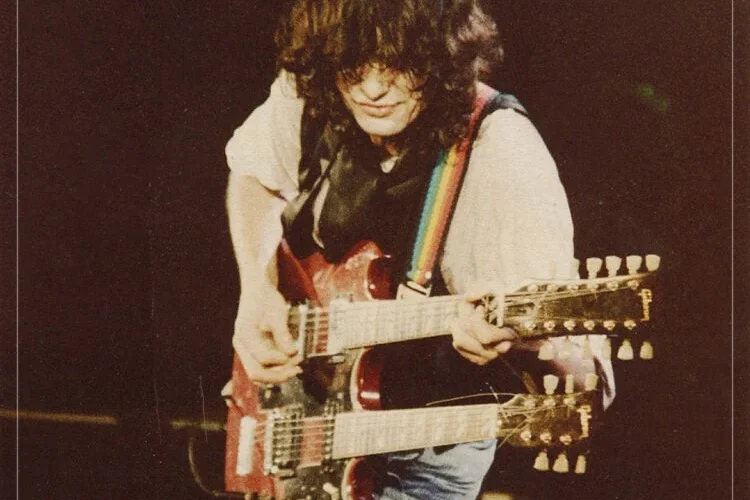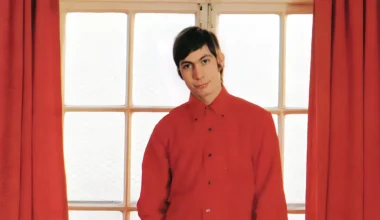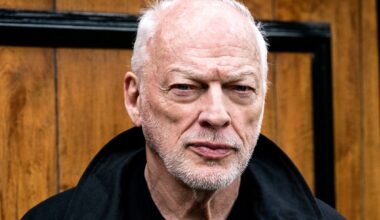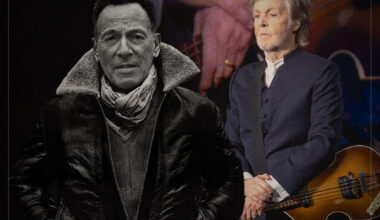By 1975, Jimmy Page wasn’t just playing the guitar—he was redefining what it could do. The Physical Graffiti tour found Led Zeppelin at a towering height of musical power, and Page, at its core, was both conductor and sorcerer. Across arenas packed with tens of thousands, he channeled a blend of fury and finesse, turning every stage into a ritual space for sonic transformation.
The setlists were sprawling, but Page carried them with unshakable command. He moved from the thunderous crunch of “Trampled Under Foot” to the haunting grandeur of “Kashmir,” where Eastern motifs met Western rock muscle. On songs like “Since I’ve Been Loving You,” he poured emotion through every bent note, while the acoustic medleys—featuring “Going to California” and “Bron-Yr-Aur Stomp”—offered moments of reflective calm.
But it was “Dazed and Confused,” already a Zeppelin epic, that became a centerpiece of mystique. With his violin bow in hand, Page turned feedback into language, rhythm into incantation, crafting a surreal, time-stretching solo that stunned audiences night after night.
Page’s technical mastery was matched only by his vision. Using layered effects, alternate tunings, and a deep understanding of musical dynamics, he sculpted soundscapes that pushed hard rock beyond its boundaries. On this tour, he wasn’t just shredding—he was storytelling, using tone and tempo to take listeners on journeys.
The Physical Graffiti album itself, released just before the tour began, was Zeppelin’s most ambitious statement yet—a sprawling double LP of ferocity, beauty, and experimentation. Live, these tracks exploded with new life. Page, often draped in his dragon-emblazoned suit, played with the swagger of a rock god but the detail of a classical composer.
In hindsight, the 1975 tour stands not just as a highlight of Led Zeppelin’s career, but as a defining moment for Jimmy Page. It was the year he fully embraced his role as sonic architect—crafting not only riffs and solos, but entire atmospheres. He wasn’t just leading a band. He was shaping the sound of a generation.






